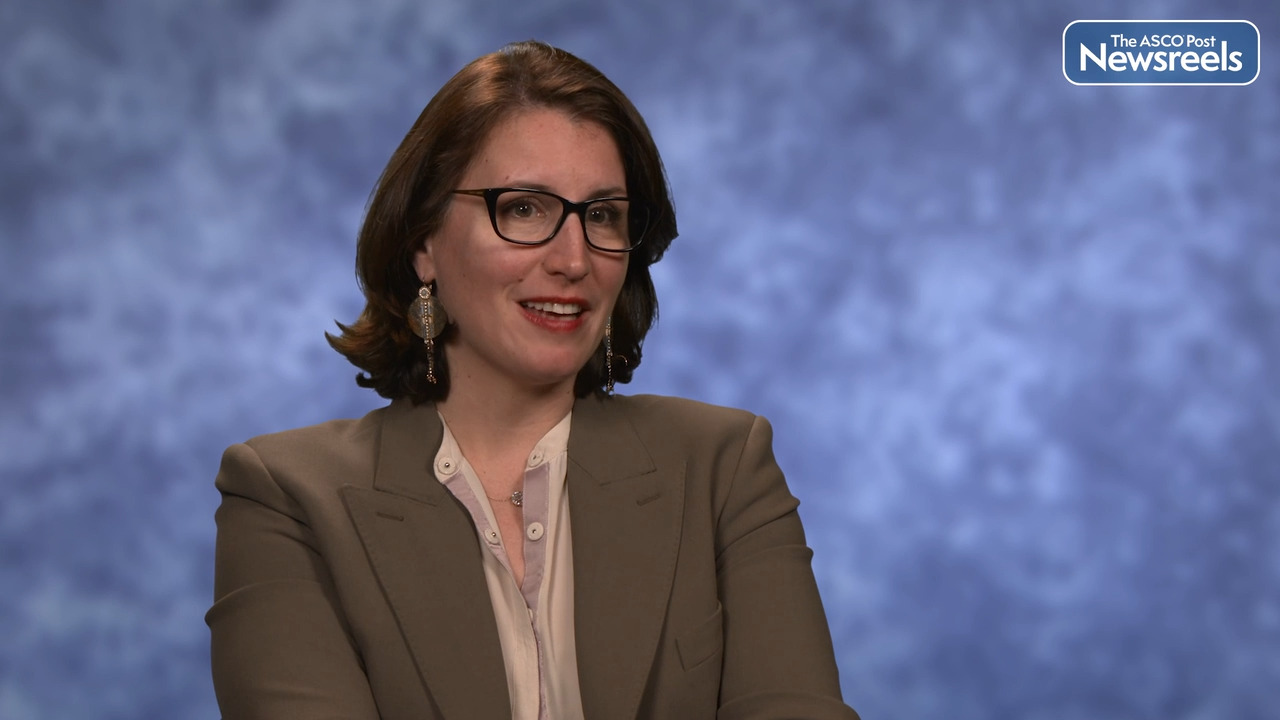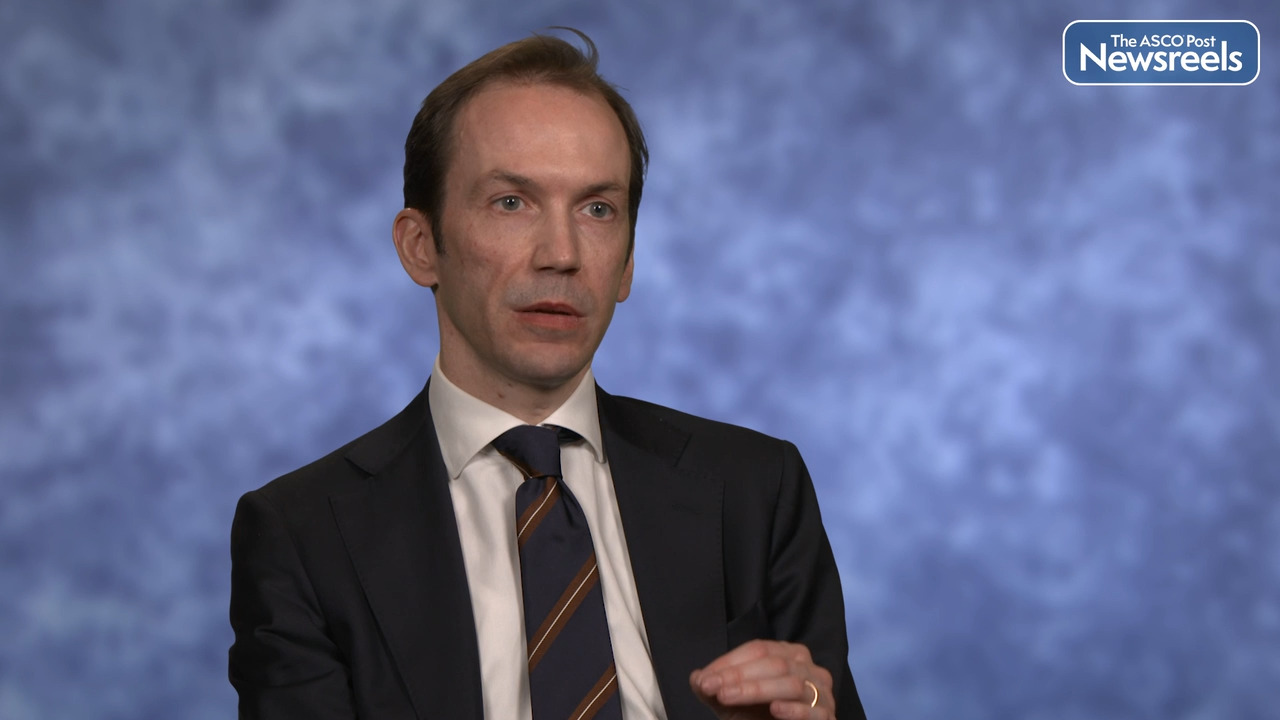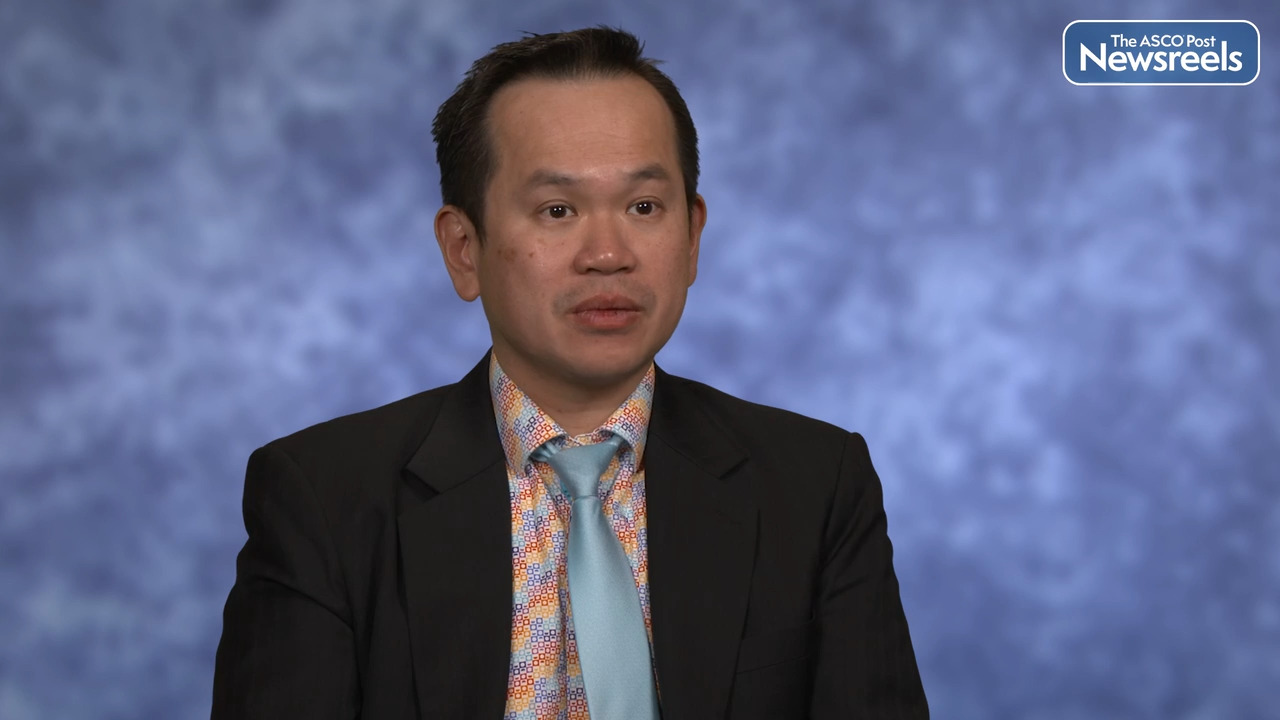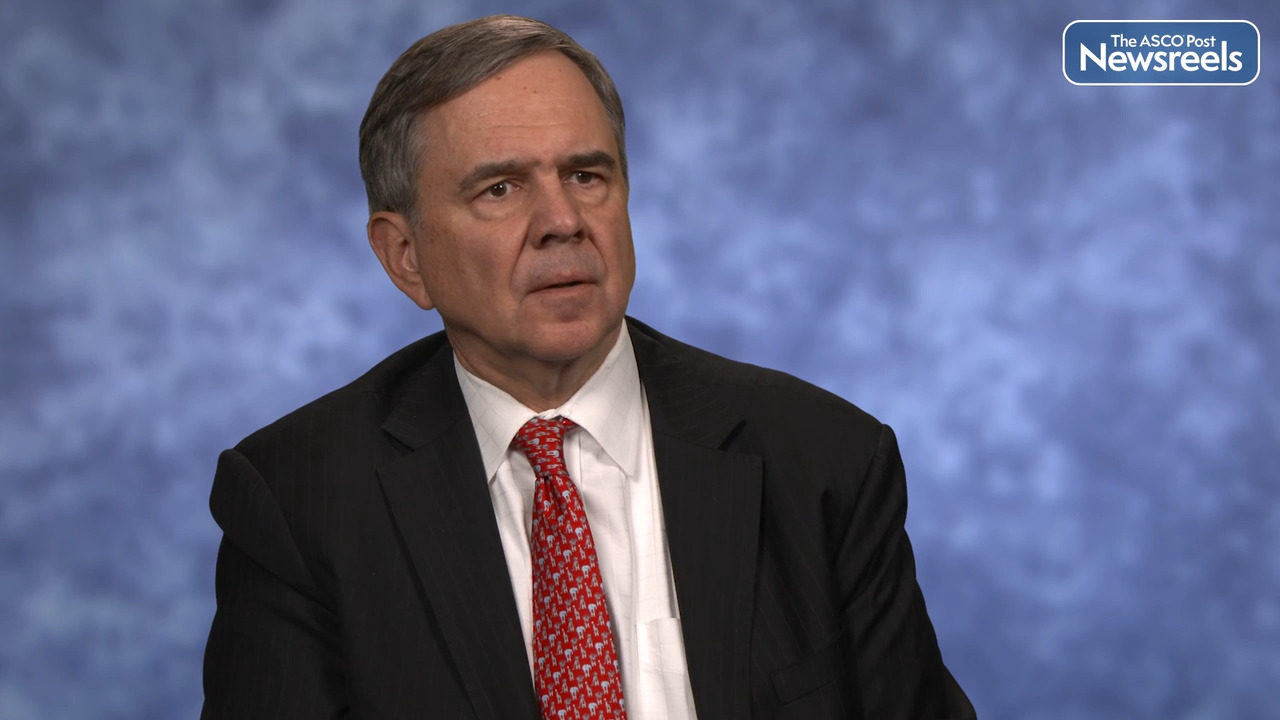Transcript
Disclaimer: This video transcript has not been proofread or edited and may contain errors.
TALAPRO-2 trial is a randomized controlled trial. It is a phase III trial which recruited patients who are in first-line metastatic CRPC setting. So, essentially, these patients had newly diagnosed metastatic castrate-resistant prostate cancer. These patients were randomized to the combination of enzalutamide plus talazoparib versus enzalutamide plus placebo. This was a placebo controlled trial for talazoparib, and enzalutamide was received by all patients.
It is important to note that the trial had two components, two cohorts, cohort one and cohort two. Cohort one is the one which was recruited first, included all-comer population regardless of presence of homologous recombination repaired gene alterations, and cohort two is a second portion of the trial, which is still ongoing. Cohort two was recruited after cohort one finished recruitment, and cohort two has patients to have homologous recombination repair gene alterations.
In the ASCO GU 2023, we reported the result only of those cohort one patients. These are 805 patients who were randomized to this enzalutamide plus talazoparib versus enzalutamide plus placebo arm. Radiographic progression-free survival was the primary endpoint and it had to be assessed by independent radiology review, so independent central review assessment was done for these scans. All the patients were tested, prospectively, by tumor tissue testing for the absence or presence of homolog three combination repair gene alterations, and this was a stratification factor in this trial. Other stratification factor was the receipt of abiraterone or docetaxel chemotherapy in the castration-sensitive setting. As I said, patients could not have received any of these medicines for castration-resistant state, but they could have received these drugs for castration-sensitive setting.
Let's talk about the results of the TALAPRO-2 trial. We saw the primary endpoint was met, radiographic progression-free survival was significantly longer with talazoparib plus enzalutamide versus enzalutamide plus placebo. There was a 37% reduction in risk of death, with the hazard ratio of 0.63 favoring the enzalutamide and talazoparib arm. Importantly, when we looked at the pre-specified stratification factors of HRR negative patients, HHR positive patients, or HRR negative plus unknown groups, in both groups, the improvement in survival was significant. So, if you look at patients who are HRR gene alteration positive, there was a 54% reduction in risk of progression or death with talazoparib in patients who belong to HRR unknown or HRR negative status, there was a 30% reduction in risk of death or progression.
Now, if you look at those patients, and this was an exploratory analysis which was done to make sure that we are not seeing any false signal in the HRR negative or HRR unknown cohort, we specifically looked at those patients who were HRR negative by prospective tumor tissue testing. We found that even this group of patients who were HRR negative by tumor tissue testing, there was a significant improvement in radiographic progression-free survival with enzalutamide with talazoparib, and there was a 34% reduction in risk of progression or death. There was a significant delay of chemotherapy, significant delay of progression or death on first subsequent therapy, there was a significant delay of deterioration of quality of life and global health status. So all those clinically meaningful endpoints were met, which were meaningful to our patients. Overall survival data are immature and right now hazard ratio is 0.89 favoring talazoparib plus enzalutamide.
Regarding the side effects, most of them were cytopenias. Anemia was commonly present, but I would like to highlight that 49% of these patients had grade 1 or 2 anemia before actually starting any treatment at baseline. So, we saw anemia in 46% patients, which is grade 3 or 4, but these all happened in first three months, and protocol did not actually require dose reduction of talazoparib until anemia was grade 3 and 4 because so many patients had grade 1 and 2 anemia at baseline. But after patients reached grade 3/4 anemia, protocol required them to reduce the dose of talazoparib. After that, talazoparib was well tolerated and there was only 8% patients who had to discontinue because of anemia.
So, bottom line from this trial, we saw enzalutamide plus talazoparib significantly improving radiographic progression-free survival, along with meeting many other clinically relevant endpoints in this first-line mCRPC patient population, regardless of homologous recombination repair gene alterations.





